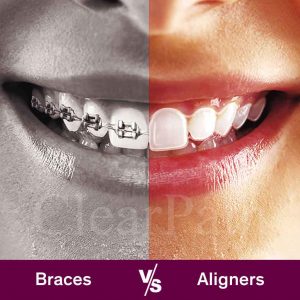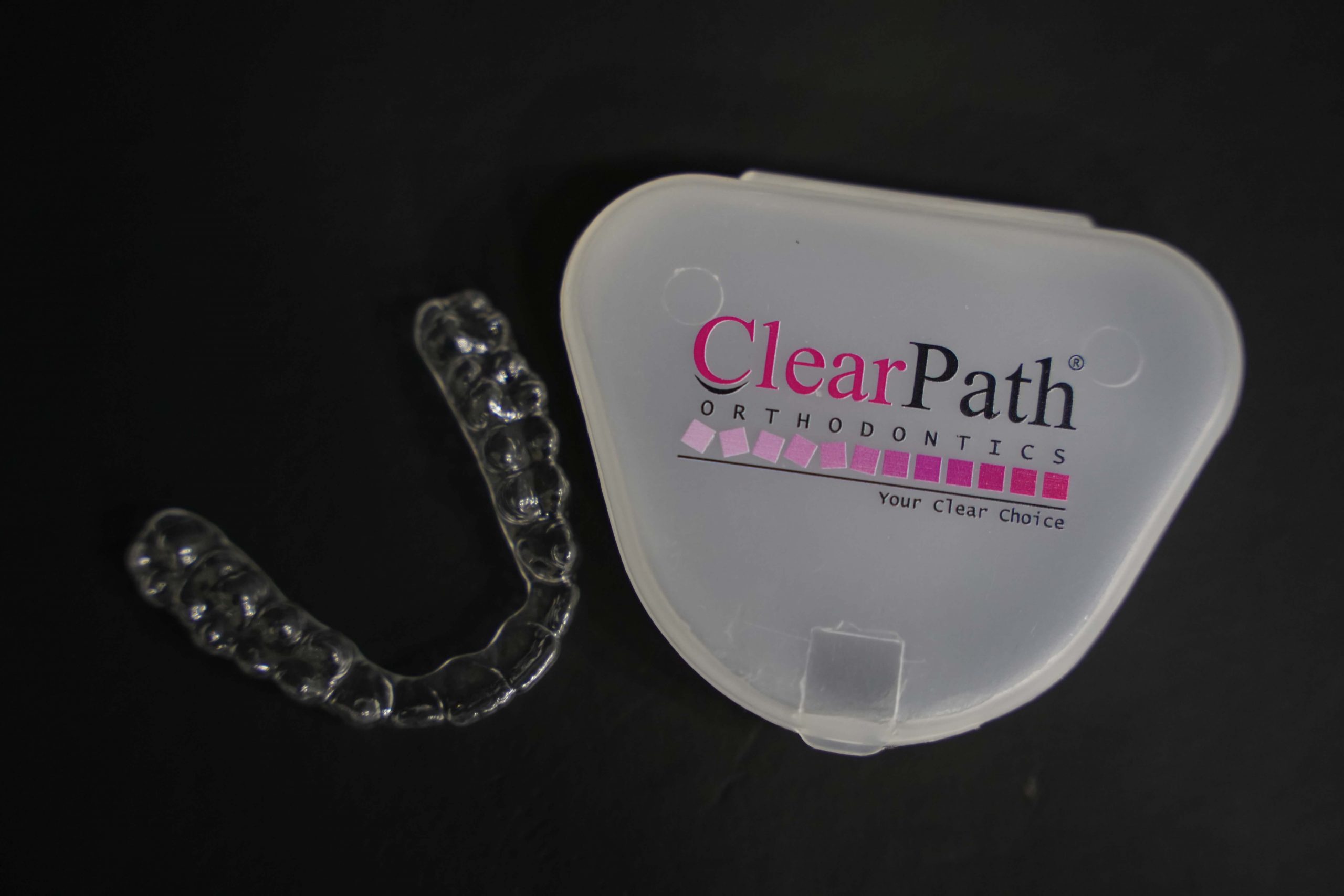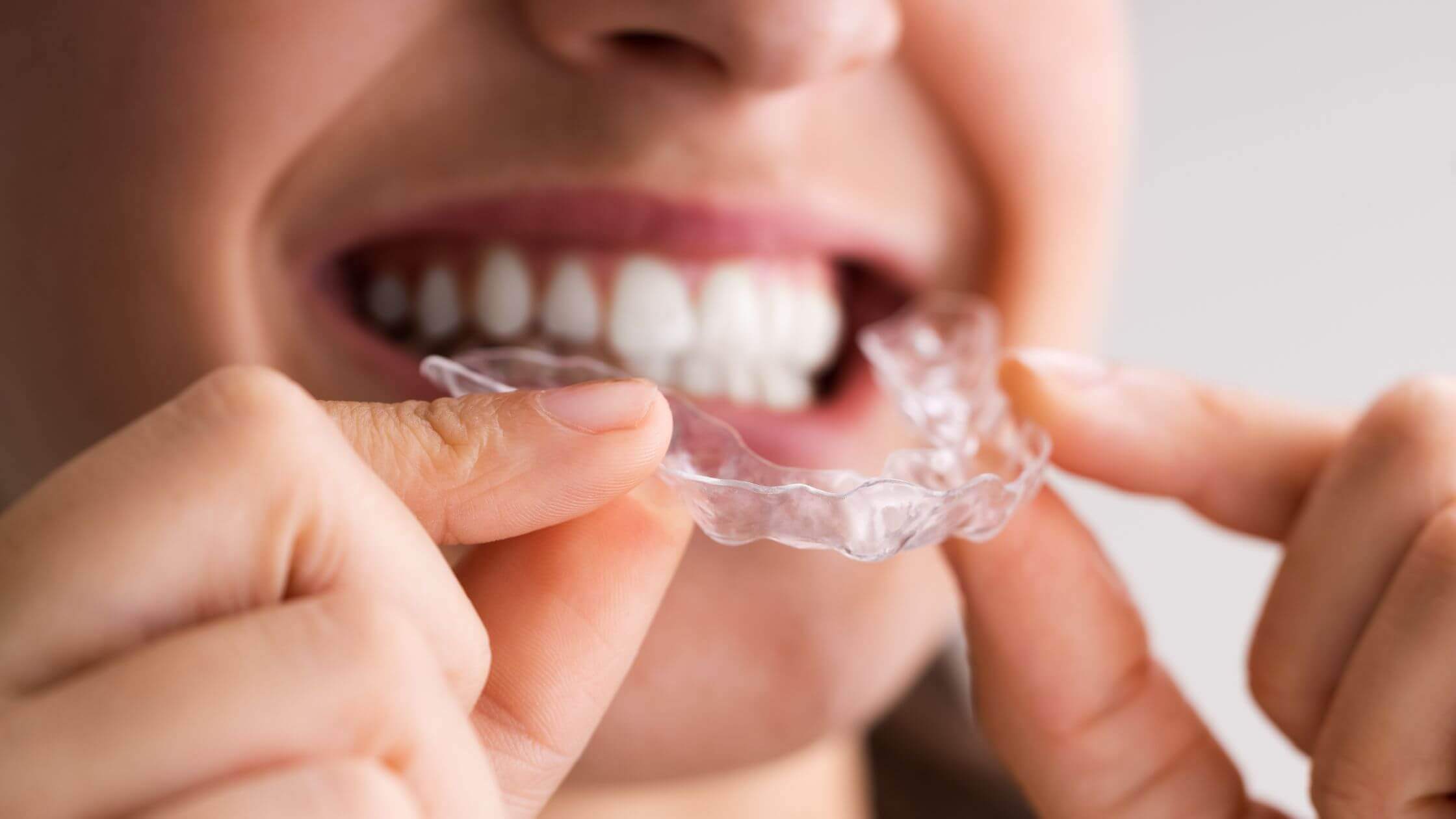Table of Contents
ToggleUnderstanding Malocclusion and the Role of Psychological Counseling in Treatment
Malocclusion, commonly known as a “bad bite,” is a prevalent dental issue that affects many individuals worldwide.
It refers to the misalignment of teeth when the jaws are closed, which can lead to various oral health problems and psychological distress.
This guide aims to provide an in-depth understanding of malocclusion, its impact on oral health, and the potential benefits of psychological counseling during its treatment.
Understanding Malocclusion and Its Types
Malocclusion is a dental condition where the upper and lower teeth do not align properly when the mouth is closed.
It typically occurs when the teeth are too large for the mouth, leading to crowding, or when the upper and lower jaws are not aligned.
There are three major classes of malocclusion:
| Malocclusion Classes | Description |
| Class I | The most common type is where the back teeth are aligned, but the front teeth are overlapping, overcrowded, or rotated. |
| Class II | Characterized by the upper teeth excessively overlapping the lower teeth, making the lower jaw appear smaller. |
| Class III | Occurs when the lower jaw is pushed forward, causing the lower teeth to overlap the upper teeth, commonly known as an underbite. |
Impact of Severe Malocclusion on Oral Health
Severe malocclusion can significantly impact oral health. It can lead to various dental problems such as decayed teeth, loss of teeth, or gum disease.
Moreover, it can affect how individuals chew food or speak and can damage tooth enamel or cause problems with the jaw.
Research has shown that severe malocclusion can negatively impact the oral health-related quality of life (OHRQoL) of individuals. It can affect their function, appearance, social life, and self-esteem.
For instance, individuals with severe malocclusion may avoid social situations and relationships because they feel self-conscious about their appearance.
Introduction to Psychological Counseling and Its Benefits
Psychological counseling is a therapeutic practice that helps individuals explore their moods, behaviors, and emotions, providing fresh perspectives and a better understanding of their feelings.
It offers numerous benefits, including:
| Benefits of Counseling | Description |
| Improving Mood | Counseling can help improve mood and treat mental illnesses. |
| Reducing Medical Costs | By addressing mental health issues, counseling can potentially reduce medical costs. |
| Improving Communication and Relationships | Counseling can help individuals communicate better and improve their relationships. |
| Promoting Self-esteem and Resilience | Counseling can boost self-esteem and resilience, helping individuals cope with life’s challenges. |
Exploring the Potential Benefits of Psychological Counseling During Severe Malocclusion Treatment
Psychological counseling can play a crucial role in the treatment of severe malocclusion.
It can help patients cope with the emotional distress caused by their condition and improve their mental well-being.
Counseling can also help patients understand the importance of adhering to their treatment plan, thereby enhancing the effectiveness of the treatment.
Furthermore, it can provide patients with strategies to manage any social anxiety or self-esteem issues related to their malocclusion, thereby improving their overall quality of life.
While malocclusion can pose significant challenges, the combination of dental treatment and psychological counseling can offer a comprehensive approach to managing this condition.
This dual approach not only addresses the physical aspects of malocclusion but also the psychological impacts, ensuring a holistic treatment experience for patients.
The Psychological Impact of Severe Malocclusion

Understanding Severe Malocclusion
Severe malocclusion, a significant misalignment of the teeth, is a prevalent dental issue affecting many individuals worldwide.
It can lead to various oral health problems and psychological distress.
The Psychological Impact of Severe Malocclusion
Several studies have highlighted the psychological impact of severe malocclusion. It has been found that patients with severe malocclusions are more likely to have mental and behavioral disorders.
Moreover, severe malocclusion can significantly predict low self-esteem.
Self-consciousness and Low Esteem Due to Severe Malocclusion
Another study suggests that severe malocclusion can lead to self-consciousness and low self-esteem. Individuals with severe malocclusion may feel self-conscious about their appearance, which can negatively impact their self-esteem.
Malocclusion and Social Anxiety in Younger Patients
Research has shown a link between malocclusion and social anxiety, particularly in younger patients. Young adults with malocclusion can feel socially and psychologically stigmatized, which can lead to social anxiety.
Impact on Self-Perception and Body Image
Severe malocclusion can also impact an individual’s self-perception and body image.
The physical appearance, especially oral aesthetics, is an important aspect of one’s general and mental health.
Therefore, malocclusion, being a deviation in the aesthetics of what is considered normal in society, can affect an individual’s self-perception and body image.
Potential Depression or Eating Disorders Linked to Severe Malocclusion
There is evidence suggesting a potential link between severe malocclusion and depression or eating disorders. Patients with severe malocclusions may suffer from mental health problems such as depression.
Furthermore, severe malocclusion can also be associated with eating disorders.
However, it’s important to note that these conditions should be professionally diagnosed by a mental health professional.
Severe malocclusion can have a significant psychological impact on individuals, affecting their self-esteem, social interactions, and self-perception, and potentially leading to mental health issues like depression and eating disorders.
Therefore, addressing malocclusion is not just about improving oral health, but also about enhancing psychological well-being.
Navigating the Challenges of Severe Malocclusion Treatment

Discomfort or Pain Associated with Certain Treatment Methods
Orthodontic treatment for severe malocclusion often involves the use of devices such as braces or headgear.
These devices work by applying gentle, consistent pressure on the teeth to gradually shift them into proper alignment.
However, this process can sometimes cause discomfort or pain.
The pressure exerted on the teeth can lead to soreness in the mouth, particularly in the days following the initial placement of the braces or after adjustments.
Potential Anxieties Related to Treatment Discomfort and Social Implications
The discomfort associated with orthodontic treatment can lead to anxiety about the treatment process.
Patients may worry about the pain they might experience during adjustments or the potential for complications.
In addition to physical discomfort, patients may also experience social anxiety related to their appearance during treatment.
Traditional braces are visible and can draw attention to the patient’s orthodontic treatment.
This can be particularly challenging for younger patients, who may feel self-conscious about their appearance.
However, the use of clear aligners can help alleviate some of these concerns. Clear aligners are virtually invisible, allowing patients to undergo orthodontic treatment discreetly.
This can significantly reduce social anxiety related to appearance during treatment.
The Possibility of Treatment Setbacks and Their Psychological Impact
Orthodontic treatment is a complex process that requires careful planning and regular adjustments.
Despite the best efforts of orthodontists, there can be setbacks in treatment.
These can include slower-than-expected progress, complications such as tooth decay or gum disease, or issues with patient compliance.
These setbacks can have a psychological impact on patients. They can lead to feelings of frustration, disappointment, and anxiety.
Patients may worry about the length of their treatment, the potential for additional discomfort, and the outcome.
Patients need to communicate openly with their orthodontist about these concerns.
The orthodontist can provide reassurance, adjust the treatment plan if necessary, and offer strategies to help manage any discomfort or anxiety.
While the treatment of severe malocclusion can present challenges, these can be effectively managed with the right approach.
Clear communication between the patient and orthodontist, the use of modern treatment options like clear aligners, and a focus on oral hygiene can all contribute to a successful treatment outcome.
The Role of Psychological Counseling in Malocclusion Treatment

Improved Coping Mechanisms
Psychological counseling plays a crucial role in equipping patients with the tools to manage anxieties and self-consciousness associated with severe malocclusion.
Through talk therapy and cognitive-behavioral techniques, counselors help patients better understand their symptoms and develop strategies to manage their anxieties.
This includes teaching patients relaxation techniques, mindfulness exercises, and cognitive restructuring methods to help them cope with the emotional distress caused by their condition.
Enhanced Treatment Adherence
Counseling can also enhance treatment adherence. It helps patients stay motivated and compliant with their treatment plans.
Counselors work with patients to understand their concerns and fears about the treatment process and help them develop strategies to overcome these barriers.
This can include setting realistic goals, developing problem-solving skills, and using motivational interviewing techniques to enhance their motivation for treatment.
Building Self-Esteem
Counseling plays a significant role in addressing negative self-image and promoting self-acceptance during treatment.
Counselors guide individuals in cultivating self-compassion, a crucial component of improving self-esteem. Learning to treat oneself with kindness and understanding can counteract the impact of a negative self-image.
Developing self-compassion involves acknowledging imperfections without harsh judgment.
Communication and Support
Counseling provides a safe space for patients to discuss their concerns and receive support from a professional.
In this supportive environment, patients can express their thoughts, emotions, and concerns without fear of judgment.
The counselor provides empathetic listening, validates the patient’s experiences, and offers guidance and support throughout the treatment process.
Psychological counseling can significantly enhance the treatment process for severe malocclusion.
By providing coping mechanisms, enhancing treatment adherence, building self-esteem, and offering a safe space for communication and support, counseling can help patients navigate their treatment journey more effectively and confidently.
Identifying Those Who Can Benefit Most from Psychological Counseling During Malocclusion Treatment

Patients with Pre-existing Anxiety or Self-Esteem Issues
Patients with pre-existing conditions such as anxiety disorders or low self-esteem can significantly benefit from psychological counseling during malocclusion treatment.
These individuals may already be dealing with mental health challenges, and the added stress of malocclusion treatment can exacerbate these issues.
Counseling can provide these patients with strategies to manage their anxiety, boost their self-esteem, and navigate the treatment process more effectively.
Teenagers and Young Adults More Susceptible to Social Pressures
Teenagers and young adults, who are often more susceptible to social pressures, can also greatly benefit from psychological counseling during malocclusion treatment.
This age group is at a critical stage of social development, and the visible nature of orthodontic treatment can lead to feelings of self-consciousness and social anxiety.
Counseling can help these young patients manage these feelings, improve their self-confidence, and enhance their overall mood.
Adults Experiencing Unexpected Challenges During Treatment
Adults undergoing malocclusion treatment can also face unexpected challenges.
These can include dealing with the discomfort of treatment, managing the impact on their professional life, or coping with the length of the treatment process.
Psychological counseling can provide these adults with the support they need to handle these challenges.
It can help them develop coping mechanisms, manage stress, and stay motivated throughout their treatment.
Psychological counseling can be a valuable adjunct to malocclusion treatment for a wide range of patients.
Whether it’s individuals with pre-existing mental health issues, young people navigating social pressures, or adults facing unexpected challenges, counseling can provide the tools and support needed to make the treatment process smoother and more manageable.
Finding the Right Counselor for Malocclusion Treatment

The Importance of a Counselor Specializing in Dental Anxieties
When seeking psychological counseling during malocclusion treatment, it’s crucial to find a counselor who specializes in or has experience with dental anxieties.
As the study suggests dental anxiety is a common issue, affecting as many as 36% of the population.
A counselor with expertise in this area will have a deep understanding of the unique challenges and fears associated with dental treatments.
They can provide tailored strategies and interventions to help patients manage their anxieties, improve their treatment adherence, and enhance their overall well-being.
Resources for Finding a Qualified Counselor
Finding a qualified counselor who fits your needs can be a daunting task.
However, there are several resources available to help you in your search:
| Resources | Description |
| Psychology Today’s Therapist Directory | This directory allows you to search for therapists based on the challenges you face, the type of therapy you’re interested in, therapists who take your insurance, and many other factors. |
| American Psychological Association’s Psychologist Locator | This locator can help you find psychologists in your area. |
| Healthline’s FindCare Resource | This resource can help you find healthcare professionals, including therapists. |
| Referrals from Trusted Sources | You can also ask friends, family, or your primary care provider for recommendations. |
It’s important to find a counselor with whom you feel comfortable and trust.
Don’t hesitate to ask potential counselors about their experience, approach, and how they can support you during your malocclusion treatment.
Embracing the Journey to Dental Bliss
The Psychological Impact of Severe Malocclusion
Severe malocclusion, a significant misalignment of the teeth, can have profound effects on an individual’s psychological well-being.
It can lead to self-consciousness, low self-esteem, social anxiety, and even depression or eating disorders.
These psychological impacts can be as challenging to navigate as the physical discomfort associated with malocclusion.
The Benefits of Psychological Counseling During Treatment
Psychological counseling can play a pivotal role in the treatment of severe malocclusion.
It can equip patients with improved coping mechanisms to manage anxieties and self-consciousness.
Counseling can enhance treatment adherence, helping patients stay motivated and compliant with their treatment plans.
It can also build self-esteem, promote self-acceptance during treatment, and provide a safe space for patients to discuss their concerns and receive support from a professional.
An Encouraging Message About Successful Treatment Outcomes
With the right approach, including a combination of orthodontic treatment and psychological counseling, individuals can successfully navigate the challenges of severe malocclusion.
The journey may be challenging, but the outcome, a healthier, straighter smile, and improved psychological well-being is well worth it.
Ready to Transform Your Smile?
If you’re intrigued by the prospect of achieving a straighter smile without social baggage, consider our FDA-certified clear aligners.
Whether you’re in Pakistan or abroad, our friendly customer service team is here to assist you.
Fill out the contact form below, and let’s embark on your journey to dental bliss. Your information will remain confidential, and your smile unleashed! 🌟
Please note: This blog post is intended for informational purposes only and should not be used as a substitute for professional medical advice, diagnosis, or treatment. Always seek the advice of your healthcare provider with any questions you may have regarding a medical condition.











